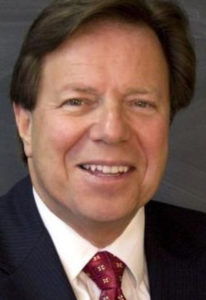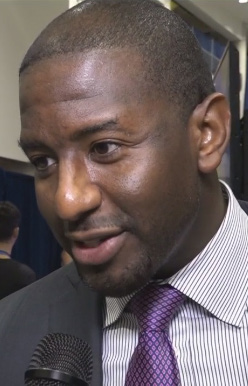After flap over racism, Sachs calls mayor a visionary
By St. Clair Murraine
Outlook staff writer
A few days after his critical response to Mayor Andrew Gillum’s statements about seeing Confederate flags in Tallahassee daily, public relation executive Ron Sachs toned down his comments a bit.
He even went as far as calling the mayor a visionary in a brief statement to the Capital Outlook.
“I believe that the mayor is a very strong leader,” Sachs said. “He’s been a visionary in many respects. I think if he had it to do over again, he would say more about Tallahassee than just references to the Confederate flag.”
The Confederate flag issue has been on Gillum’s radar for months, as he called on the government to remove racist symbols from city property. However, his comments during a campaign stop recently in Tampa prompted Sachs to say the mayor’s statement “throw us under a campaign bus” in a post on Facebook.
Gillum, who is running for governor, didn’t take long to respond.
“I love Tallahassee,” he said. “It’s where I’m raising my family, and it’s the place that gave me a chance to serve at the young age of 23. I would not choose another place to call home, and I share the beauty of my experience in Tallahassee every place that I visit.”
He also pointed out some of the initiatives he has taken to improve race relations in the city, Longest Table, Tallahassee Forward and the Village Square.
But Sachs said the mayor missed an opportunity to promote Tallahassee when he said: “Every day on my drive I see a Confederate flag on the back of a vehicle.”
“He ignored the larger truths about what makes Tallahassee a great place to live, work, learn, raise a family, start a business, serve others in need and visit,” Sachs wrote in his post. “We’re surely not perfect — but we respect diversity as strength and we call out bad behavior in any form in the daily course of solving problems.”
Gillum, known for not being shy on the topic of race in his city, said he chose to bring up the Confederate flag when asked by his audience to discuss race relations in his city. He said he could have talked about health disparities, economic disparities, disparities in the criminal justice system and in sentencing, but decided to share his personal experience.
“I believe we are at a time in our state and our nation’s history that requires not just people who quietly agree on these critical issues we are facing,” he said, “but people who are going to be champions, who will get out and lead in these tough conversations.”









